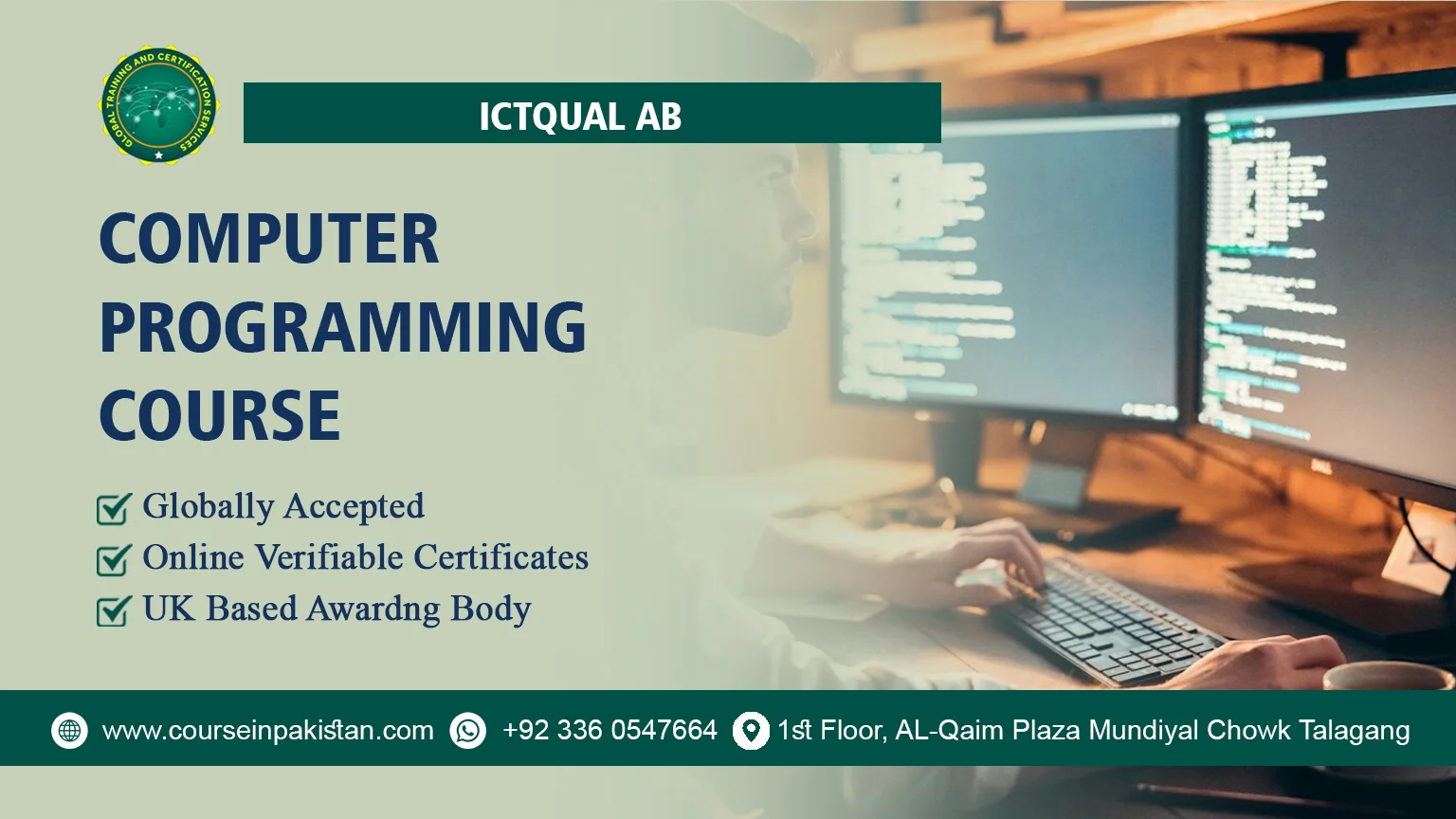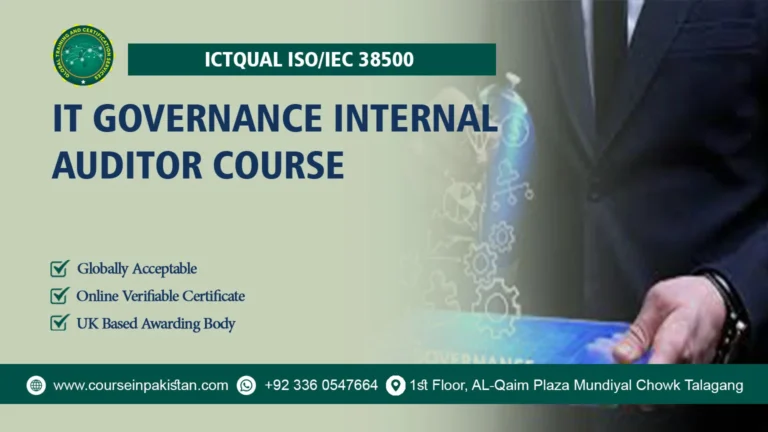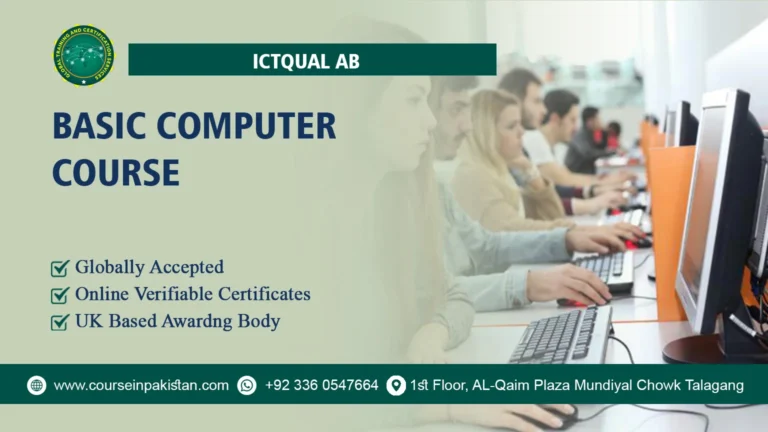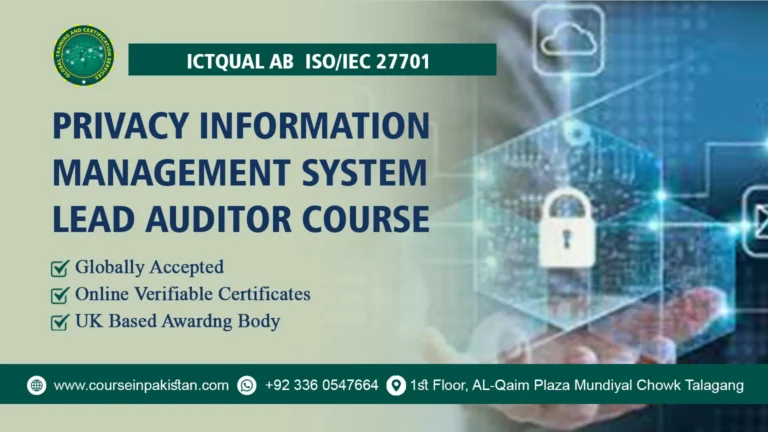
ICTQual Computer Programming Course
In today’s digital landscape, computer programming serves as the backbone of technological innovation, powering everything from software applications to artificial intelligence. The Computer Programming Course offers an immersive experience into the world of coding, equipping participants with essential skills to develop efficient algorithms, design robust software solutions, and solve complex problems programmatically.
Course Introduction
The Computer Programming Course introduces participants to the fundamentals of programming languages, algorithms, and problem-solving techniques. It aims to demystify the art of coding and empower learners with the knowledge to write clean, efficient, and scalable code for diverse applications.
Course Overview
Participants can expect a structured curriculum that covers key programming concepts, practical exercises, and hands-on projects. From learning foundational programming languages to mastering data structures, algorithms, and debugging techniques, this course provides a comprehensive education in software development.
Course Benefits
- Skill Development: Gain proficiency in programming languages such as Python, Java, or C++.
- Problem-Solving: Develop analytical and logical thinking skills to tackle real-world challenges.
- Career Opportunities: Prepare for roles as a software developer, web developer, data analyst, or systems engineer.
- Innovation: Learn to innovate and create software solutions that drive technological advancements.
Course Study Units
The Computer Programming Course covers essential study units to build a strong foundation in programming:
- Introduction to Programming Concepts
- Programming Languages and Syntax
- Data Structures and Algorithms
- Object-Oriented Programming (OOP)
- Web Development Fundamentals
- Database Management Systems (DBMS)
- Software Development Lifecycle (SDLC)
Learning Outcomes
Introduction to Programming Concepts
Upon completion of this unit, participants will:
- Understand fundamental programming concepts such as variables, data types, and control structures.
- Grasp the importance of algorithms and problem-solving techniques in programming.
- Gain familiarity with pseudocode and flowcharting for designing algorithms.
Programming Languages and Syntax
After mastering this unit, participants will be able to:
- Differentiate between programming paradigms such as procedural, object-oriented, and functional.
- Write syntactically correct code in at least one programming language like Python, Java, or JavaScript.
- Apply programming language features like loops, conditionals, and functions to solve coding problems.
Data Structures and Algorithms
By the end of this unit, participants will:
- Understand various data structures such as arrays, linked lists, stacks, queues, trees, and graphs.
- Implement common algorithms for sorting, searching, and graph traversal.
- Analyze the time and space complexity of algorithms to optimize performance.
Object-Oriented Programming (OOP)
Upon completing this unit, participants will:
- Grasp the principles of Object-Oriented Programming (OOP) including encapsulation, inheritance, and polymorphism.
- Design and implement classes and objects in programming languages that support OOP.
- Use OOP concepts to model real-world entities and relationships in software applications.
Web Development Fundamentals
After mastering this unit, participants will:
- Understand the architecture of web applications and client-server communication.
- Create responsive and interactive web pages using HTML, CSS, and JavaScript.
- Implement basic front-end frameworks and libraries for enhanced web development.
Database Management Systems (DBMS)
By the end of this unit, participants will:
- Learn fundamental concepts of Database Management Systems (DBMS) including relational databases and SQL.
- Design and create databases, tables, and queries to manage data effectively.
- Implement CRUD (Create, Read, Update, Delete) operations and ensure data integrity and security.
Software Development Lifecycle (SDLC)
Upon completing this unit, participants will:
- Understand the phases and processes of the Software Development Lifecycle (SDLC).
- Apply different SDLC models such as Waterfall, Agile, and DevOps in software development projects.
- Participate effectively in each phase of the SDLC including requirements gathering, design, development, testing, deployment, and maintenance.
These learning outcomes ensure that participants of the Computer Programming Course gain comprehensive knowledge and skills in programming concepts, languages, data structures, algorithms, OOP principles, web development fundamentals, DBMS, and SDLC methodologies. Whether aiming to become a software developer, web programmer, database administrator, or pursue a career in IT project management, mastering these study units provides a solid foundation for success in the dynamic field of computer programming and software development.
Who Is This Course For?
The Computer Programming Course is ideal for:
- Aspiring Programmers: Looking to start a career in software development or programming.
- Technology Enthusiasts: Interested in learning coding languages and expanding their technical skills.
- Career Changers: Wanting to transition into the tech industry and pursue roles in software engineering or data analysis.
- Entrepreneurs: Seeking to develop technical skills to innovate and create software solutions.
Future Progression for This Course
Completion of the Computer Programming Course opens pathways for further specialization and career advancement:
- Advanced Programming Courses: Pursue specialized courses in areas such as web development, mobile app development, or data science.
- Certifications: Obtain industry certifications in programming languages or specific technologies (e.g., AWS Certified Developer).
- Specialized Roles: Explore opportunities in software architecture, machine learning, cybersecurity, or blockchain development.
- Freelance or Consulting: Start a freelance career offering programming services or consulting for software projects.
Computer Programming Course equips individuals with the foundational skills and knowledge to thrive in the rapidly evolving field of computer programming. Whether aiming to develop cutting-edge software applications, advance in a tech career, or launch entrepreneurial ventures, mastering programming opens doors to endless opportunities in the digital age. Start your journey towards mastering computer programming today and unlock your potential to shape the future of technology.





